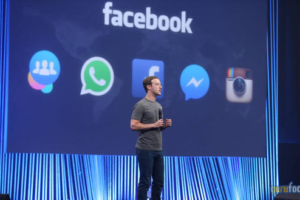<p class="canvas-atom canvas-text Mb(1.0em) Mb(0)–sm Mt(0.8em)–sm" type="text" content="Alphabet (NASDAQ: GOOG) (NASDAQ: GOOGL) recently announced something big for video game fans: Stadia, a light-on-hardware cloud gaming streaming platform that the company promises will launch in the United States, Canada, the United Kingdom, and "most of Europe" this year.” data-reactid=”11″>Alphabet (NASDAQ: GOOG) (NASDAQ: GOOGL) recently announced something big for video game fans: Stadia, a light-on-hardware cloud gaming streaming platform that the company promises will launch in the United States, Canada, the United Kingdom, and “most of Europe” this year.
<p class="canvas-atom canvas-text Mb(1.0em) Mb(0)–sm Mt(0.8em)–sm" type="text" content="But the company did not say exactly when the new platform would debut, and they left out a few other key details, too. Here are a few questions that we still have about Stadia.” data-reactid=”12″>But the company did not say exactly when the new platform would debut, and they left out a few other key details, too. Here are a few questions that we still have about Stadia.


Image source: Getty Images
How much will it cost?
Google’s big announcement left out a few key pieces of information, not the least of which was how much Stadia will actually cost.
<p class="canvas-atom canvas-text Mb(1.0em) Mb(0)–sm Mt(0.8em)–sm" type="text" content="In fact, while most observers believe the offering will be a subscription service in the mold of a "Netflix for games," Google hasn’t actually said that. The pricing structure could end up very different — for instance, Google could charge on a per-game basis.” data-reactid=”27″>In fact, while most observers believe the offering will be a subscription service in the mold of a “Netflix for games,” Google hasn’t actually said that. The pricing structure could end up very different — for instance, Google could charge on a per-game basis.
<p class="canvas-atom canvas-text Mb(1.0em) Mb(0)–sm Mt(0.8em)–sm" type="text" content="Given prior reports and a landscape that includes subscription rivals like NVIDIA‘s GeForce Now and Sony‘s PlayStation Now, it seems likely that Google will offer a subscription rather than a la carte pricing.” data-reactid=”28″>Given prior reports and a landscape that includes subscription rivals like NVIDIA‘s GeForce Now and Sony‘s PlayStation Now, it seems likely that Google will offer a subscription rather than a la carte pricing.
What games will be available?
<p class="canvas-atom canvas-text Mb(1.0em) Mb(0)–sm Mt(0.8em)–sm" type="text" content="Google showed off Assassin’s Creed: Odyssey in its Stadia showcase, so we know that Stadia is ready to play host to AAA games. But overall, Google’s presentation was very light on confirmed titles: There were just three in total.” data-reactid=”30″>Google showed off Assassin’s Creed: Odyssey in its Stadia showcase, so we know that Stadia is ready to play host to AAA games. But overall, Google’s presentation was very light on confirmed titles: There were just three in total.
When video games run on devices, they need to be coded to work on the relevant hardware. Games can be ported from PC to console or the other way around, or developed for multiple consoles at once, but there is labor involved in making the code work on different platforms. Google’s Stadia will stream to users on various devices, but its home base will be Google’s Linux servers. That means console games, and even Windows PC games, will need to be ported over.
<p class="canvas-atom canvas-text Mb(1.0em) Mb(0)–sm Mt(0.8em)–sm" type="text" content="Getting a robust game selection will be key to luring players away from consoles and PCs, so look for Google to be very active in trying to woo developers to its platform. But it won't all be smooth sailing: Some of the biggest and best game studios and publishers are owned by ActiVision Blizzard, Sony, and Microsoft, all of which have or will soon have cloud gaming services of their own — and all of which Google just turned into direct competitors.” data-reactid=”32″>Getting a robust game selection will be key to luring players away from consoles and PCs, so look for Google to be very active in trying to woo developers to its platform. But it won’t all be smooth sailing: Some of the biggest and best game studios and publishers are owned by ActiVision Blizzard, Sony, and Microsoft, all of which have or will soon have cloud gaming services of their own — and all of which Google just turned into direct competitors.
Can our internet infrastructure support Google’s dreams?
The core concept behind Stadia is cloud gaming. While traditional video games have run on hardware that’s right there with the gamer, cloud gaming services do the computational work on servers and stream the game to a user’s device. To do that without frustrating input lag and choppy graphics, Google needs more than just powerful servers — it needs a speedy connection between those servers and the end user’s device.
That means that how well this service runs is not entirely within Google’s control. Stadia will have to rely on varying internet connections and network speeds all over the country. And while Google detailed the hardware on its server side in its presentation at GDC, it did not say how fast the connection would have to be to run games smoothly.
<p class="canvas-atom canvas-text Mb(1.0em) Mb(0)–sm Mt(0.8em)–sm" type="text" content="We know that Project Stream, Stadia's predecessor, required a minimum download speed of 25 Mbps. That's well within reach for many urban and suburban dwellers, but there are still plenty of places in the United States where 25 Mbps looks very, very fast. As of 2017, there were still 2.1 million people in the country with dial-up.” data-reactid=”36″>We know that Project Stream, Stadia’s predecessor, required a minimum download speed of 25 Mbps. That’s well within reach for many urban and suburban dwellers, but there are still plenty of places in the United States where 25 Mbps looks very, very fast. As of 2017, there were still 2.1 million people in the country with dial-up.
The good news for Google is that broadband penetration continues to grow, and the next iteration of wireless connection — 5G — seems likely to be fast enough to support mobile gaming. Again, though, much of this depends on how much bandwidth Stadia actually needs.
Will it make any money?
Ultimately, Alphabet and its investors have one lingering question about Stadia: Will this thing make any money?
Cloud gaming will keep Google from having to invest lots of cash in physical manufacturing — which is good, because only a few consoles have turned profits on hardware. And there certainly have been streaming success stories in other areas, such as video streaming.
<p class="canvas-atom canvas-text Mb(1.0em) Mb(0)–sm Mt(0.8em)–sm" type="text" content="But other streaming ventures, like Google's own forays into music and live TV, have been less than profitable. In streaming music and streaming live TV, competition is steep and profits seem to be a long way off. Meanwhile, Google is going to see plenty of competition in the cloud gaming space — including from companies that own game studios and are better positioned to use a Netflix-like original content strategy.” data-reactid=”45″>But other streaming ventures, like Google’s own forays into music and live TV, have been less than profitable. In streaming music and streaming live TV, competition is steep and profits seem to be a long way off. Meanwhile, Google is going to see plenty of competition in the cloud gaming space — including from companies that own game studios and are better positioned to use a Netflix-like original content strategy.
Of course, Google has deep pockets and can afford to be in this for the long haul. That’s good, because they’ll have to be if they’re going to outlast the competition. In the meantime, maybe the company will find the time to answer some of these questions.
<p class="canvas-atom canvas-text Mb(1.0em) Mb(0)–sm Mt(0.8em)–sm" type="text" content="Suzanne Frey, an executive at Alphabet, is a member of The Motley Fool’s board of directors. Teresa Kersten, an employee of LinkedIn, a Microsoft subsidiary, is a member of The Motley Fool’s board of directors. Stephen Lovely has no position in any of the stocks mentioned. The Motley Fool owns shares of and recommends Activision Blizzard, Alphabet (A shares), Alphabet (C shares), Microsoft, Netflix, and Nvidia. The Motley Fool has a disclosure policy.” data-reactid=”47″>Suzanne Frey, an executive at Alphabet, is a member of The Motley Fool’s board of directors. Teresa Kersten, an employee of LinkedIn, a Microsoft subsidiary, is a member of The Motley Fool’s board of directors. Stephen Lovely has no position in any of the stocks mentioned. The Motley Fool owns shares of and recommends Activision Blizzard, Alphabet (A shares), Alphabet (C shares), Microsoft, Netflix, and Nvidia. The Motley Fool has a disclosure policy.



